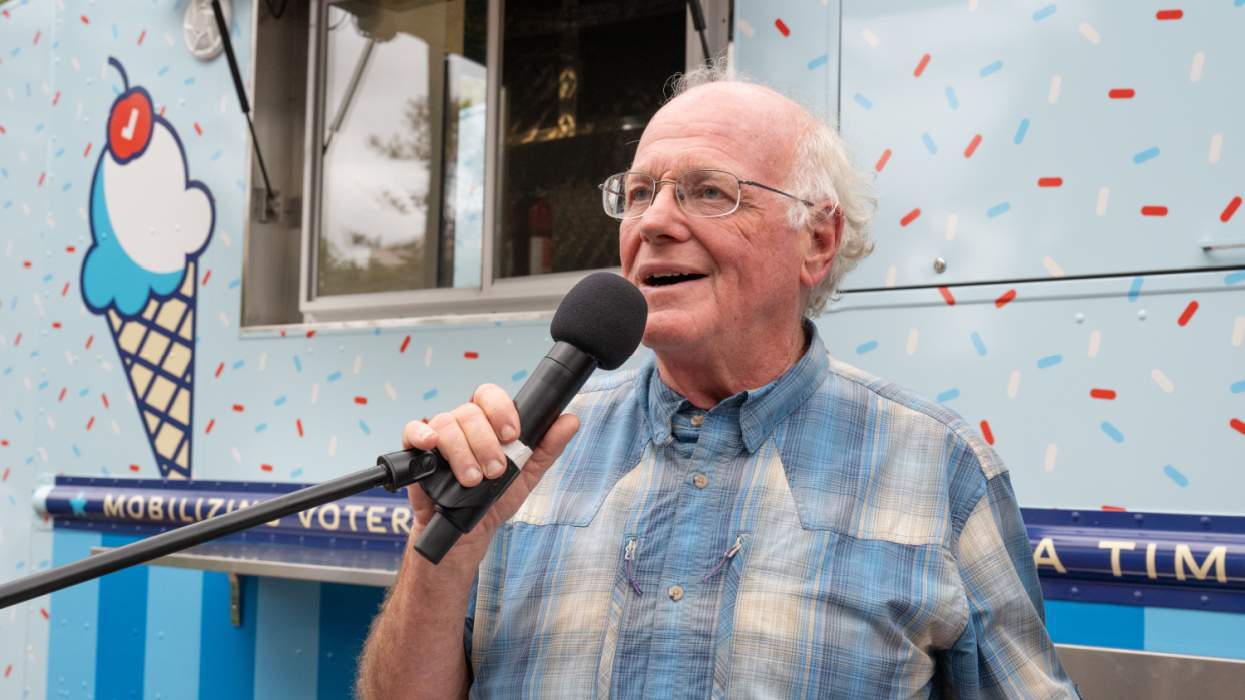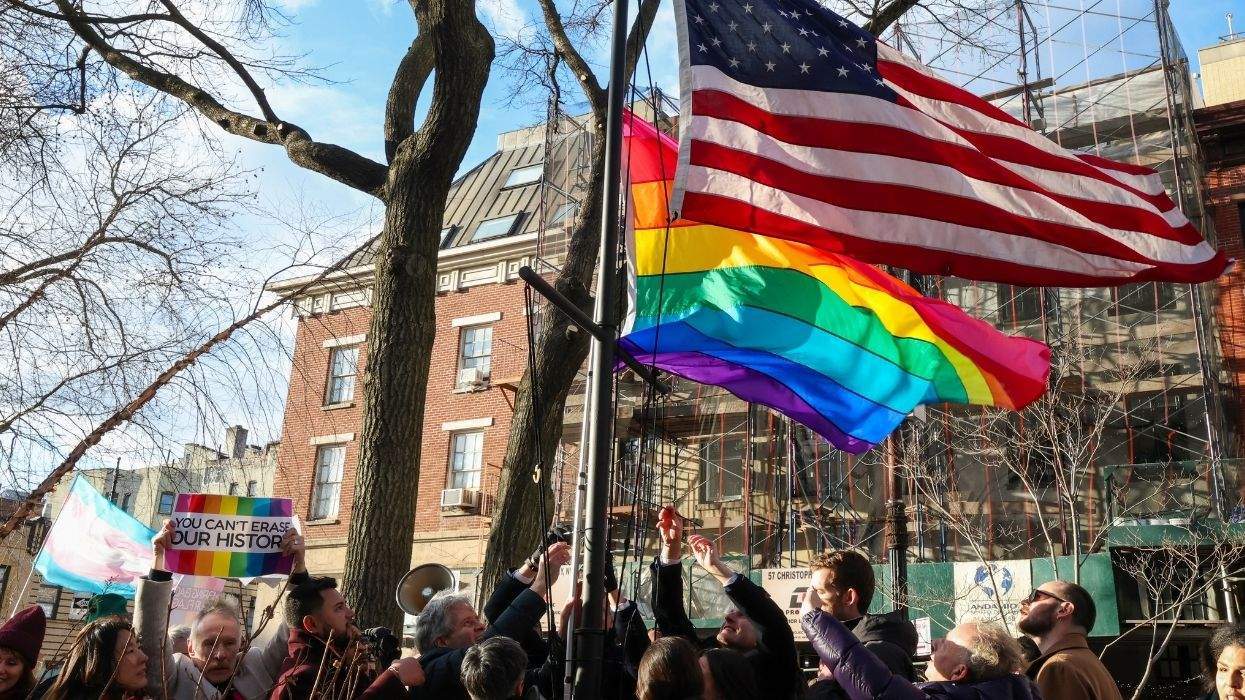A slight majority of LGBTQ+ adults feel they belong in U.S.society, while transgender people report a low sense of belonging, according to a poll out this week from Data for Progress, a think tank based in Washington, D.C.
A second poll from the organization, conducted among likely voters, "underscores severe disparities around economic insecurity and mental health dissatisfaction between LGBTQ+ voters and those who are cisgender and straight," says a Data for Progress press release. The polls were released in observance of the 54th anniversary of the Stonewall riots.
“It’s clear that many LGBTQ+ people, particularly those who are transgender, struggle to feel a sense of belonging and don’t feel comfortable expressing themselves in their communities. Coupled with the disproportionate rates of mental health dissatisfaction and economic insecurity, these alarming findings cannot be divorced from the relentless political attacks that anti-LGBTQ+ politicians have leveled at the LGBTQ+ community,” Rob Todaro, communications director at Data for Progress, said in the release. “Elected officials must work to confront economic and health disparities, defend LGBTQ+ people against right-wing attacks, and implement intersectional policies that foster acceptance and connectedness.”
The poll of LGBTQ+ adults found that groups within the LGBTQ+ community have varying senses of belonging in U.S. society and their neighborhoods. A majority of LGBTQ+ adults feel like they somewhat or strongly belong in U.S. society (53 percent) and in their neighborhoods and surrounding community (52 percent). But a majority of transgender adults report a low sense of belonging in U.S. society (59 percent) and in their neighborhood (50 percent). In comparison, a majority of cisgender LGBQ+ adults report a high sense of belonging in U.S. society (56 percent) and in their neighborhood (53 percent).
It also found that fear of violence or harassment continues to prevent many LGBTQ+ adults, particularly those who are transgender, from being themselves.Fewer than half of transgender adults feel comfortable dressing and acting the way they want (45 percent) or engaging in public displays of affection (46 percent) in their local community without fear of violence or harassment. This is compared to 67 percent and 59 percent of cisgender LGBQ+ adults, respectively. Only 43 percent of transgender adults feel comfortable being open and transparent about their sexual orientation or gender identity in their local community compared to 60 percent of cisgender LGBQ+ adults.
Another finding was that many LGBTQ+ adults rely on online spaces to socialize with others and find affirmation. LGBTQ+ adults socialize daily with other LGBTQ+ people more often in online communities or on social media platforms like Twitter, Instagram, Reddit, or Discord (41 percent) than in their local community (33 percent). Transgender adults are more likely than cis LGBQ+ adults to socialize daily with other members of the LGBTQ+ community. Forty-eight percent of transgender adults socialize daily with LGBTQ+ people both in their local community and online, while only 30 percent of cisgender LGBQ+ adults socialize with other LGBTQ+ people in their community daily and 40 percent socialize with other LGBTQ+ people online daily.
LGBTQ+ adults, especially young adults, are more open about their sexual orientation or gender identity with their online communities compared to their families and neighborhoods. LGBTQ+ adults aged 18-24 are more open with their online community than their neighborhood by a +37-point margin. Furthermore, they’re more open with their online community than with their families by a +30-point margin.
The poll of likely voters found thatLGBTQ+ voters feel higher levels of dissatisfaction with their mental health, standard of living, and household income than cisgender, straight voters. Among cisr, straight voters, 72 percent are satisfied with their mental health, 65 percent are satisfied with their standard of living, and 52 percent are satisfied with their household income. In comparison, 51 percent of LGBTQ+ voters are satisfied with their mental health, 46 percent are satisfied with their standard of living, and only 38 percent are satisfied with their household income.
LGBTQ+ voters are more likely to struggle to pay essential bills. While 53 percent of cisgender and heterosexual voters never have problems paying for food and groceries, only 31 percent of LGBTQ+ voters report the same. Fifty-five percent of cisgender and heterosexual voters never struggle to pay utility, compared to 36 percent of LGBTQ+ voters.
The poll of LGBTQ+ adults was conducted from May 19 to 22 and included 1,036 people. The poll of likely voters was conducted May 25 and 26 among 1,269 people.
Read the full results here.















Charlie Kirk DID say stoning gay people was the 'perfect law' — and these other heinous quotes
These are some of his worst comments about LGBTQ+ people made by Charlie Kirk.